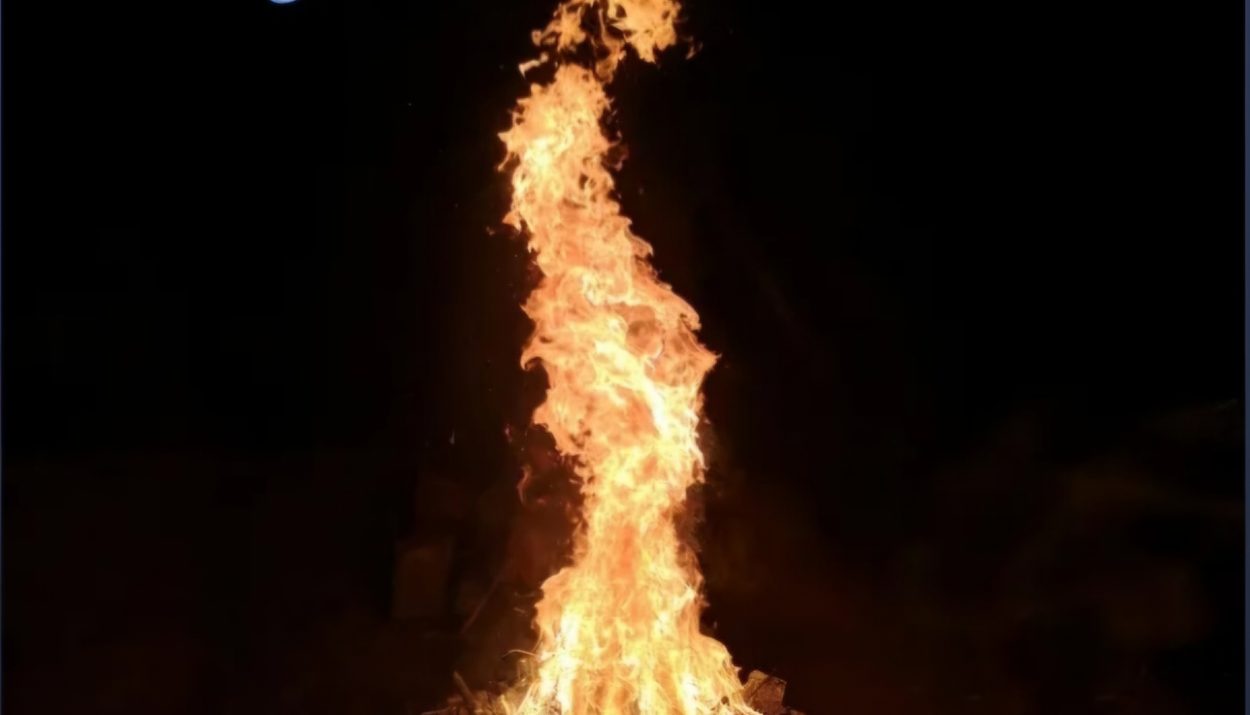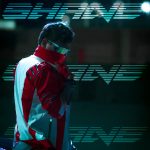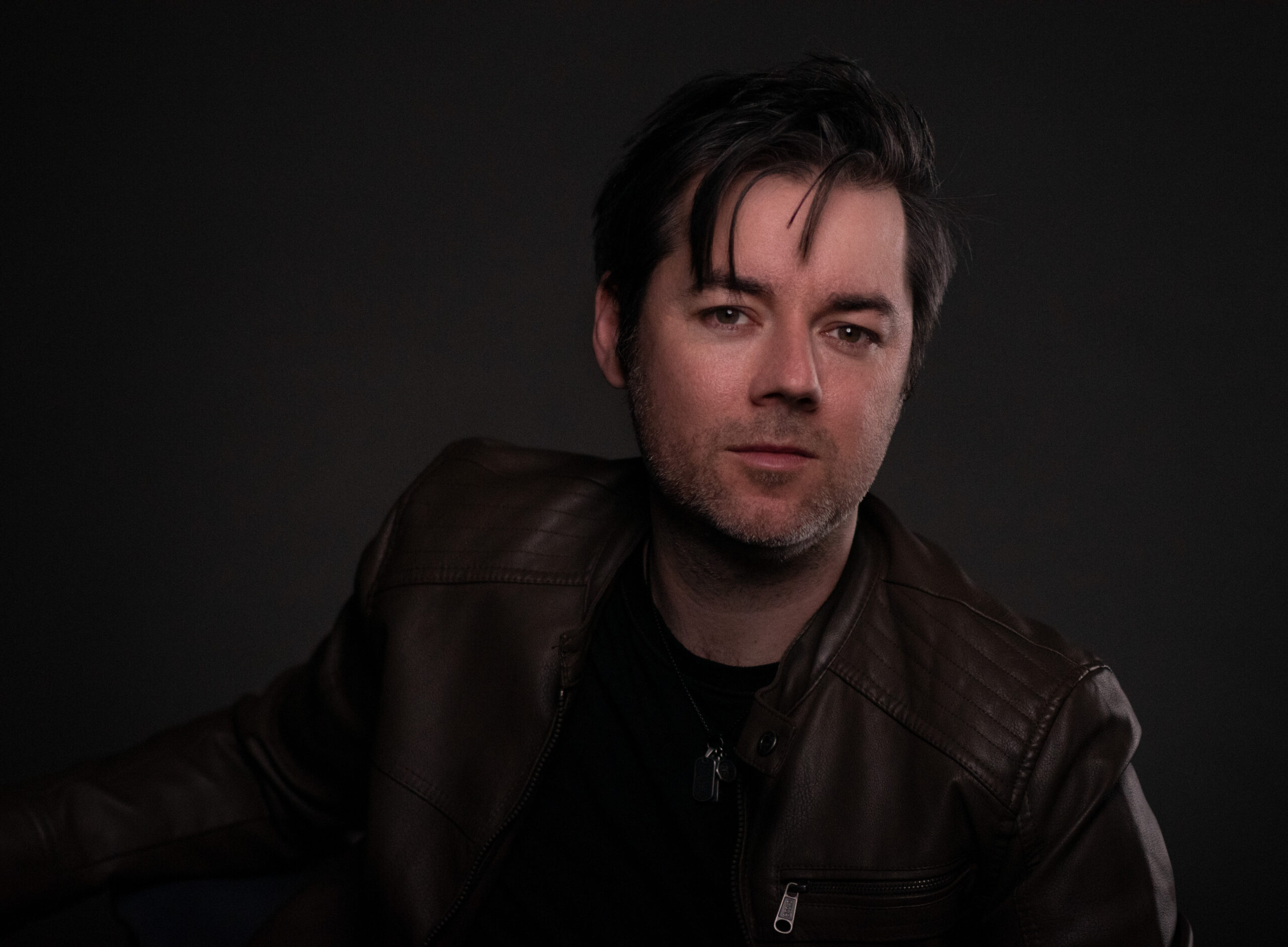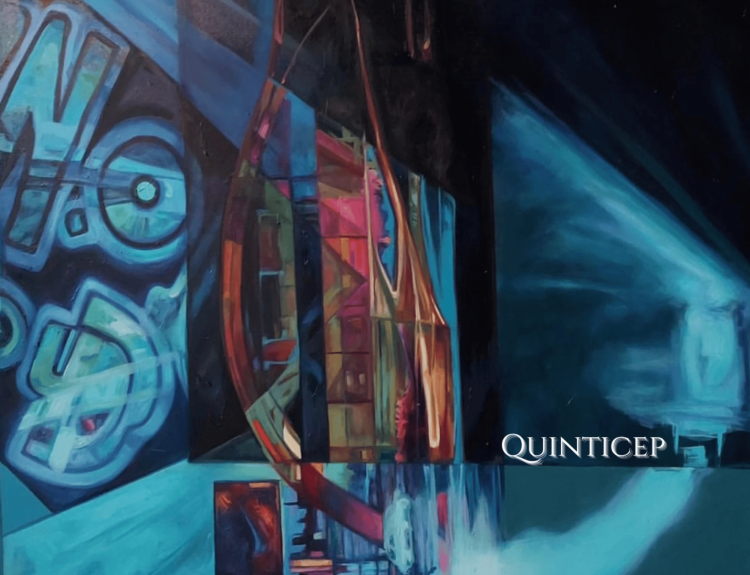There’s a rare and breathtaking quality in the way Ian Leding creates his music—an authenticity and rawness that feels almost ethereal, like stepping into the faded memories of a dream you’re not quite ready to wake from. “Lucifleure”, his second acoustic album released on September 10, 2022, is a masterful work of alt-folk intimacy, where the acoustic guitar gently cradles each song and the voice of Leding himself guides you through a maze of deep reflection and vulnerability. With every note, every strum, he invites us into his world, where love and loss, regret and redemption, are explored with poetic depth and haunting beauty. Alongside his partner, Annie Rose, who plays the Djembe and lends her voice to their creations, Leding has carefully sculpted “Lucifleure” into an album that captures the essence of life’s fleeting moments and the emotional depth found in shadow and light. What emerges from this collaboration is an album filled with heartfelt explorations of love, regret, and the passage of time.
The journey begins with “Hologram Hands,” a song that immerses you in an almost dreamlike atmosphere. From the opening delicate finger-picked guitar, you are transported into Leding’s world—one where memory, self-doubt, and the fragility of human connection take center stage. His vocals are soft yet haunting, with a deep sense of vulnerability that resonates deeply as he sings, “What do you see when you gaze in my eyes, shadows of countless and sleepless nights?” Leding’s delivery feels intimate, almost confessional, drawing you in as if sharing his most personal fears. The acoustic instrumentation, with its gentle guitar strumming and subtle percussion, reinforces the meditative quality of the song, creating a landscape where you can lose yourself in the ethereal imagery of the lyrics.
In “Kings and Queens,” Leding reflects on love and nostalgia through a dreamlike longing for escape and togetherness. His voice, tender yet full of quiet strength, delivers the line, “I’m the King, and you are my Queen. We’ll go to places nobody has been,” with a touch of wistfulness that evokes a world where love is boundless and free. The minimalist production, featuring only the warmth of acoustic guitars and subtle percussion, serves to enhance the song’s emotional depth. This delicate arrangement mirrors the fleeting beauty of the imagery, with the line, “grains of sand in our hands, running through our fingers, and be gone,” driving home the notion of time slipping away, a theme that continues throughout the album.
Next, “Running Out” pulses with the urgency of time running out. Leding’s delivery of “Got one life to live, and your time is running out” is raw, poignant, and full of the kind of vulnerability that only comes with facing one’s mortality. The acoustic guitar’s rhythmic strumming mirrors the pressing nature of time, while Leding’s voice—soft and tender—captures the overwhelming feeling of life slipping by too quickly. The stripped-back production ensures that you are completely immersed in the song’s emotional weight, with every strum and word feeling like a shared moment of reckoning.
With “Odessa (Version),” Leding transports us to the distant shores of the Black Sea, where the haunting beauty of the sea beckons and longing for faraway places takes center stage. The lyrics, “Leave those regrets far behind / Open your mind up to the other side,” evoke a sense of freedom and escape, yet there is a quiet regret woven throughout the song. Leding’s velvety vocals reflect the serenity of the sea and the introspective journey of moving beyond past mistakes. The acoustic arrangement—fingerpicked guitar and subtle string flourishes—creates a dreamy soundscape that mirrors the song’s themes of hope and self-discovery, while the minimalistic production enhances the raw intimacy of Leding’s performance.
“Beautiful Monster” is a deeply emotional and introspective ballad that digs into the internal battle with one’s dark thoughts and feelings. Leding describes a “beautiful monster” lurking within, with lyrics like “a dark cloud deep in my soul,” creating a visceral sense of inner turmoil. His voice is frail yet defiant, capturing the struggle of loving and loathing the same part of oneself. The minimalistic acoustic arrangement, built on sparse strums and subtle percussion, complements the confessional nature of the song, allowing Leding’s vocals to remain front and center, where every note feels weighty and significant.
In “Heartbeats,” the steady rhythm of the heart becomes a metaphor for the passage of time and life’s inevitability. The gentle, almost hypnotic acoustic guitar creates an intimate atmosphere, mirroring the quiet urgency Leding conveys in his vocal performance. The lyrics, “And the other day it’s almost gone,” bring a sense of bittersweet reflection, while the line, “Heartbeats like a drum,” creates a rhythmic pulse that reinforces the song’s theme of time marching forward relentlessly. The song’s simplicity and sparse instrumentation make every beat feel important as if each moment should be savored before it slips away.
The title track, “Lucifleure,” is an evocative ballad that explores the liminal space between grief and solace. Leding’s tender and resolute vocals lead you through an emotional journey of self-discovery as the mysterious figure of Lucifleure emerges from the flames to offer comfort and wisdom. The stripped-back acoustic guitar and subtle arrangements create a contemplative atmosphere that allows the lyrics to shine. Lines like “My name is Lucifleure, and you can call on me anytime when I’m gone” speak to the search for guidance in the face of life’s trials, making this song a powerful meditation on loss, self-acceptance, and the quest for inner peace.
With “Missing,” Leding delves deep into the sorrow of loss, painting a vivid picture of a space left behind by a loved one. The lyrics, “One of us is missing, one of us is gone,” frame the song as an emotional journey through the grief of absence. Leding’s voice, tender and raw, carries the weight of the missing piece, while the acoustic guitar creates an ethereal atmosphere that reinforces the somber beauty of the track. The simple production allows the intimacy of the song to shine, making it feel like an intimate conversation with the listener—a shared experience of grief and reflection.
The album closes with “Ghosthunter,” a chilling yet captivating track that blurs the line between life and death. Leding’s gravelly yet warm voice introduces an enigmatic persona: “They call me the ghost hunter, the hunter of ghosts I am,” as he draws you into a world where the supernatural and the real intertwine. The acoustic instrumentation, stripped-back and intimate, enhances the haunting nature of the song, with Leding’s voice carrying an almost hypnotic quality. The eerie yet inviting production creates a sense of mystery, making this track a fitting conclusion to the album’s journey through loss, self-reflection, and the search for meaning.
In “Lucifleure,” Ian Leding has created a work of profound beauty, where every track is a meditation on love, loss, time, and the human experience. The album’s minimalist acoustic arrangements and raw, emotional delivery allow you to connect deeply with the themes at its core. Leding’s voice, fragile yet powerful, carries each song, while the sparse production ensures that every moment feels intimate and personal. “Lucifleure” is an album that lingers long after it ends, evoking a sense of quiet reflection that will resonate with you long after the final note fades.
Listen to the “Lucifleure” album on Spotify
Follow Ian Leding here for more information






